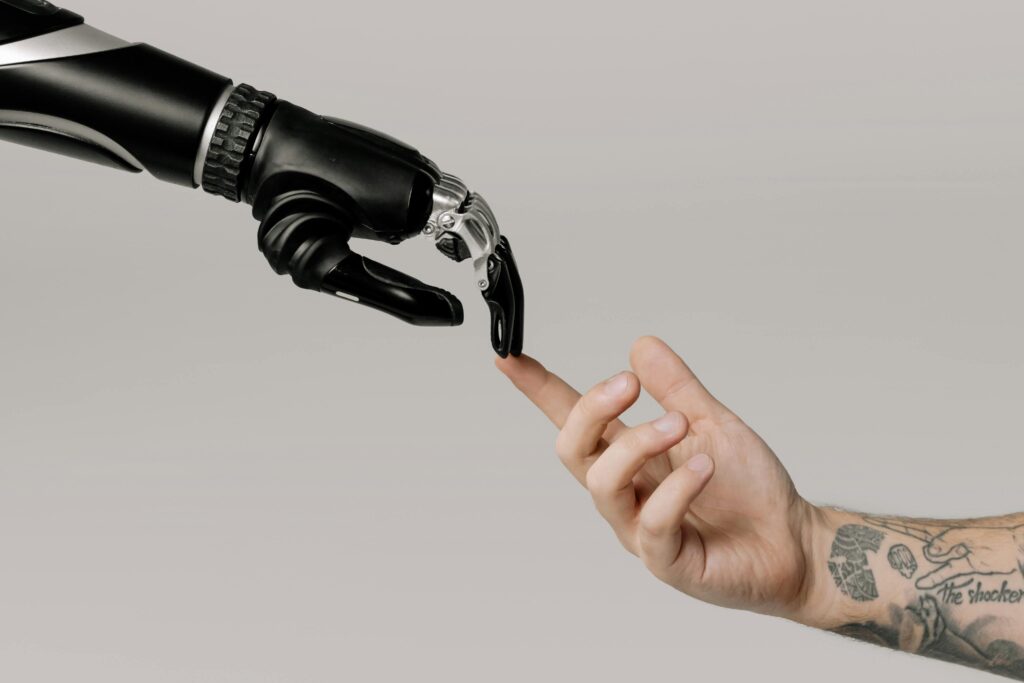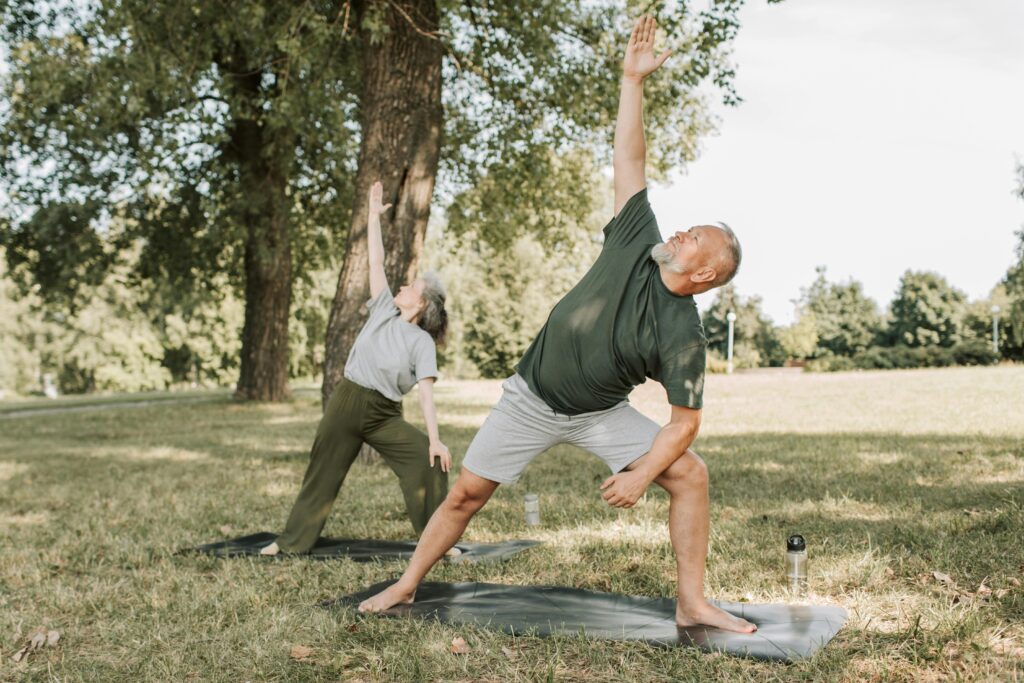MOST MEN ACCEPT that feeling slower, weaker and more tired is just part of getting older. But emerging evidence suggests you can reclaim years of cellular vitality in as little as three months.
The results of a published pilot study which I led suggest that by targeting key drivers of ageing: mitochondrial health, oxidative stress and epigenetics (how your lifestyle impacts the way your genes work), men can measurably shift the trajectory of how they age[i].
Bridging the Male Health Gap
While Australian men are living longer than ever, they often spend their final decade of life in poor health[ii]. Globally, men’s average healthspan or years spent in good health lags lifespan by about nine years[iii]. With Australia’s over-65 population set to more than double in the next 40 years, bridging that gap is critical[iv].
The good news: with a focused plan, you can support strength, energy and mental clarity well into midlife and beyond.
Fuel Your Cells, Fuel Your Life
Mitochondria are the “powerhouses” in every cell, producing the energy molecule ATP[v]. They are most concentrated in energy-hungry tissues such as the heart, brain, muscles and even sperm[vi]. Ubiquinol sits at the heart of this process, supporting energy production[vii] and acting as a potent antioxidant[viii].
After the age of 30, our natural levels of Ubiquinol start to decline[ix]. Lower levels can impact energy[x], recovery[xi] and overall vitality[xii]. This makes maintaining mitochondrial health through strength training, restorative sleep, stress management and a nutrient-rich diet, key.
More Than Just Energy
Research shows that Ubiquinol’s antioxidant activity and role in cellular energy production can also support:
- Heart health: Helping maintain healthy cholesterol levels and normal cardiovascular function[xiii].
- Exercise recovery: Assisting with muscle recovery after intense workouts and relieving tiredness or fatigue[xiv].
- Male fertility: Supporting healthy sperm count, motility and morphology[xv].
- Healthy ageing: Helping to neutralise free radicals and reduce oxidative stress, a key driver of accelerated ageing[xvi].
These benefits complement the exercise, diet and mindfulness practices that form the backbone of the three-month plan.
A Three-Month Blueprint to Turn Back Your Biological Age
Month 1: Build Your Base
- Exercise: 30 minutes daily and three strength sessions weekly. Start with bodyweight exercises.
- Nutrition: include daily:1.6-2 grams protein/kg ideal weight, six serves of vegetables (greens, cruciferous, colourful), whole grains and fresh herbs and spices.
- Hydration: Water, herbal teas, maximum 2 coffees (before 2pm).
- Mindset: 5-10 minutes meditation or breathwork daily.
Month 2: Add Resilience
- Training: Progress to using weights and include compound movements like squats and presses.
- Cold Exposure (optional): Experiment with a 30–60 second cold shower which is good for building mental resilience (avoid if you have stress/immune issues).
- Wholefoods: Ditch processed foods; add nuts, seeds, omega-3s and fermented foods.
- Track: Monitor your workouts, sleep and energy.
Month 3: Lock It In
- Prioritise recovery: Consistent, high-quality sleep (recommendation 7-9 hours per night) is essential for mitochondrial function.
- Nutrition: Stick to protein and diverse vegetables; swap refined carbohydrates for complex ones.
- Consistency: Aim for 80% adherence – sustainable wins beat perfection. The payoff is building habits that stick long beyond three months.
Strong at Any Age
Healthy ageing isn’t just about avoiding illness. It’s about preserving the vitality of your cells so you can stay strong, energised and resilient at every stage of life.
In fact, our pilot study looked at a range of biological age measures and found meaningful improvements. Markers of cellular and DNA damage, key drivers of accelerated ageing, were significantly reduced. The PhenoAge clock, which reflects metabolic health and blood biomarkers, also showed a measurable improvement.
And while we can’t rewind the calendar on our birthdays, we can turn back our biological age – the age of our cells – in as little as three months. The tools are simple but powerful: real, nutrient-rich food, regular exercise and incorporating targeted compounds that support mitochondrial and cellular health.
With the right plan, it’s possible not just to add years to life, but life to years.
Dr. Denise Furness is a molecular geneticist and nutritionist specialising in personalised health through nutrigenomics and epigenetics.
Always read the label. Use only as directed. If symptoms persist consult your healthcare professional.
REFERENCES:
[i] Furness D, Taylor P. Three-Month Nutritional and Lifestyle Intervention Reduces Biological Age: A Pilot Study Using DNA Methylation Clocks. JACNEM, September 2025: 50-58.
[ii] https://www.aihw.gov.au/reports/mens-health/male-health/contents/how-healthy?request=smoothstate
[iii] https://ourworldindata.org/data-insights/global-average-life-expectancy-has-more-than-doubled-since-1900?
[iv] https://www.abs.gov.au/statistics/people/population/population-projections-australia/2022-base-2071
[v] Suomalainen A, Nunnari J. Mitochondria at the crossroads of health and disease. Cell 2024;187(11):2601-2627.
[vi] https://pmc.ncbi.nlm.nih.gov/articles/PMC6131403/?utm
[vii]Mizuno K, et al. Ubiquinol-10 intake is effective in relieving mild fatigue in healthy individuals. Nutrients 2020;12(6):1640.
[viii] Frei B, et al. Ubiquinol-10 is an effective lipid-soluble antioxidant at physiological concentrations. Proc Natl Acad Sci USA 1990;87:4879-4883.
[ix] Wada H, et al. Redox status of coenzyme Q10 is associated with chronological age. JAGS. 2007;55:1141-1142.
[x] Mizuno K, et al. Ubiquinol-10 intake is effective in relieving mild fatigue in healthy individuals. Nutrients 2020;12(6):1640.
Fukuda S, et al. Ubiquinol-10 supplementation improves autonomic nervous function and cognitive function in chronic fatigue syndrome. Biofactors 2016;42(4):431-440.
[xi] Moreno-Fernandez J, et al. Ubiquinol short-term supplementation prior to strenuous exercise improves physical performance and diminishes muscle damage. Antioxidants (Basel) 2023;12(6):1193.
Sarmiento A, et al. Short-term Ubiquinol supplementation reduces oxidative stress associated with strenuous exercise in healthy adults: A randomized trial. Biofactors 2016;42(6):612-622.
[xii] Cirilli I, et al. Role of coenzyme Q10 in health and disease: An update on the last 10 years (2010–2020). Antioxidants 2021;10:1325.
San-Millán I. The key role of mitochondrial function in health and disease. Antioxidants (Basel) 2023;12(4):782.
[xiii] Rabanal-Ruiz Y, et al. The use of coenzyme Q10 in cardiovascular diseases. Antioxidants (Basel) 2021;10(5):755.
Kawashima C, et al. Ubiquinol improves endothelial function in patients with heart failure with reduced ejection fraction: A single-center, randomized double-blind placebo-controlled crossover pilot study. Am J Cardiovasc Drugs 2020;20(4):363-372.
[xiv] Mizuno K, et al. Ubiquinol-10 intake is effective in relieving mild fatigue in healthy individuals. Nutrients 2020;12(6):1640.
Fukuda S, et al. Ubiquinol-10 supplementation improves autonomic nervous function and cognitive function in chronic fatigue syndrome. Biofactors 2016;42(4):431-440.
[xv] Derbyshire E (2024). CoQ10 Ubiquinol: The surfacing of science and role in female and male fertility. A narrative review. 10.20944/preprints202407.0879.v1.
Wu CC, et al. Examining the effects of nutrient supplementation on metabolic pathways via mitochondrial ferredoxin in aging ovaries. Nutrients 2024;16(10):1470.
[xvi] San-Millán I. The key role of mitochondrial function in health and disease. Antioxidants (Basel) 2023;12(4):782.
Related:
Billionaire anti-ageing enthusiast Bryan Johnson shares his strict 3-meal daily diet















